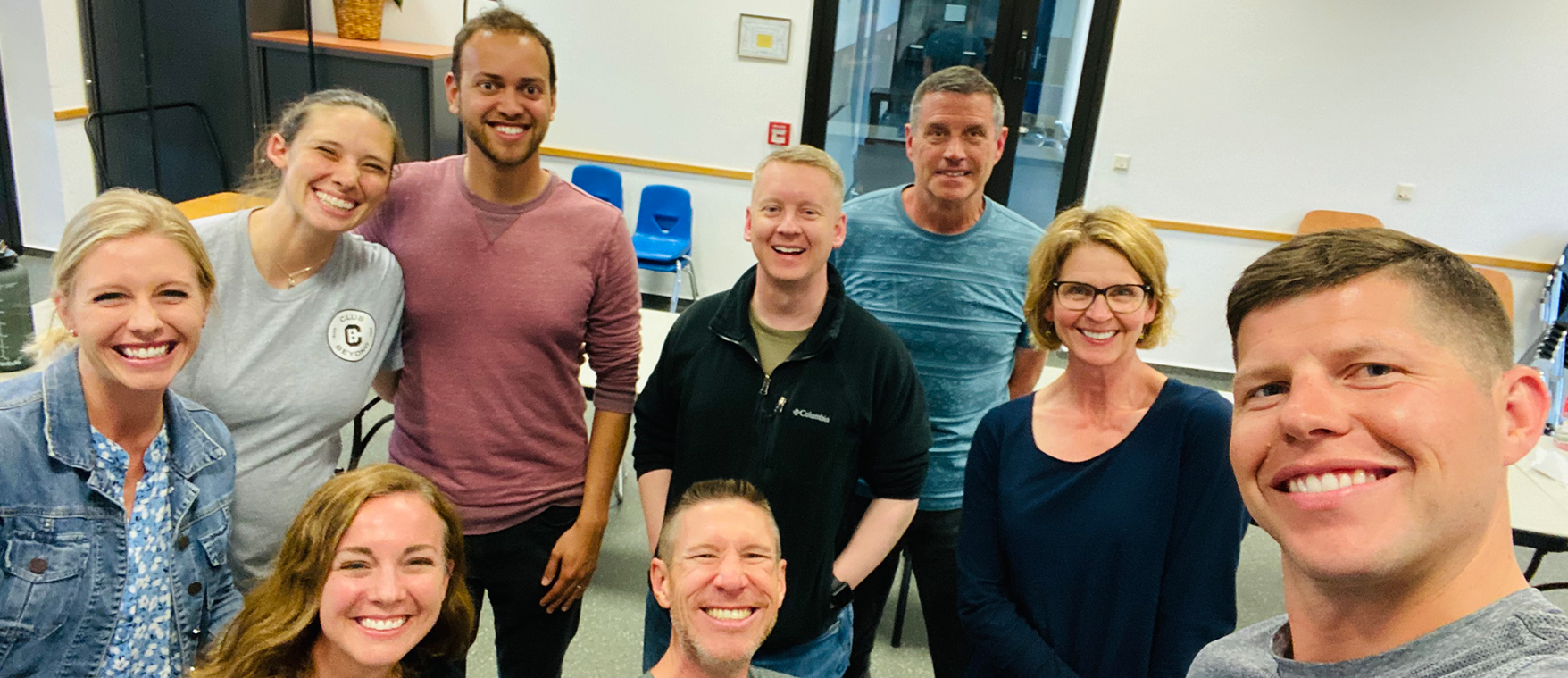15: Transitions & Handoffs
IN THIS CHAPTER
Ensure you stay connected to Biblical fellowship through a PCS or TDY/TAD. You and your group can use the OCF Directory, OCF staff, and friends who can help connect people in various locations. The habits and rhythm of TDY/TAD locations and new assignments tend to be established in the first days and weeks after arrival, so join a local body to find fellowship and worship right away.
Download the Handbook
Get a PDF of the entire OCF Handbook, including all chapters and appendices.
YOU ARE ARRIVING
Transition times are a great reason to check the OCF website (ocfusa.org/directory) for a local leader and fellowship at your TDY/TAD or new living location. If a fellowship already exists, join in and get involved right away. “First-month decisions” tend to become your fixed habits for the rest of an assignment, so commit soon and commit hard. After that initial commitment, it will be more natural to persevere in the new rhythm.
If there is no group or leader in your area, pray about how to proceed and get ready to host a PDO. You can fill out the “List Me” form on OCF’s website and become the OCF Contact or Local Leader, then initiate your PDO to get a group gathered. Meet the chaplains, pray for them, and keep them advised as you proceed. Keep using the Pray-Discover-Obey process throughout all your major decisions, and repeat it for every new assignment or deployment.
You take the good news of Jesus Christ into the military community where you serve. Start leading today and stay on mission. (See the chapters on PDO and on Starting and Sustaining Fellowship.)
YOU ARE DEPARTING
Departing transitions are the gateways that must be passed through for a small group or Bible study to move from being a one-and-done gathering into a long-term presence of the installation and local Christian fellowship. OCF knows the challenge of sustaining local fellowships that begin under the tutelage of an enterprising individual or couple, but then struggle to be sustained. Thriving groups sometimes vanish once that individual or couple moves elsewhere.
As a leader (or member) of a small group, help ensure that your small group/Bible study makes the transition between one leader PCSing and another taking over.
FACING CHANGE
This process of baton-passing might sound daunting, but it simply entails taking ownership of the transition process. Just like when there is no Bible study or small group near you and the responsibility falls to you to start one, so also the responsibility falls to you to either pick up or hand off the baton when the Bible study/group leader is PCSing.
If you are the departing leader, strive to hand off the baton to someone who is qualified to lead the group and host regular meetings. Not everyone will have a vision for keeping a local fellowship group going, so do your best to communicate the vision of why military fellowship and Bible study are important. You might be able to stir up a group effort to share the load of hosting, facilitating, and leading weekly gatherings, but there should be one person who accepts final responsibility.
USE PDO
PDO is extremely helpful for any transition process. Ask the Lord for wisdom to see who might carry the baton going forward, and be open to the fact that the answer might surprise you. Use Scriptural principles (i.e., someone with a good reputation, known for hospitality) and a sense of who will persevere in the role (Titus 2:1-10). Ask who is present and able to step up and lead. Is there anyone affiliated with OCF who is transitioning to your location? Ask the OCF Home Office if they know of anyone in the area or heading your way.
Ultimately, however, we trust God with the sustainment of His body even as we work hard to be faithful stewards of influence and connections.
Make a deliberate “ask” of the next leader, and take time to share information and knowledge that will help the transition. The local OCF body may actually grow healthier because of the transition due to the stress and uncertainty that cause people to be more God-reliant, and it guards the group from dependence on a particularly charismatic or dynamic leader.
Once again, we petition God for grace and mercy, that He would keep the OCF group from an inappropriate sense of loss and move it toward greater maturity. Remain confident that every PCS and every transition is from God’s hand.
STAY IN TOUCH
After you PCS—either as a leader or as a member—remember that your advocacy for the body does not end. Look backwards and see how the fellowship you just left is doing. Ask how you can pray for and support them. Consider whether you can return for a quick visit. Do not let fellowship starve over distance. Keep your eyes open for fellow believers who might be visiting the area you left so you can link them up.
Do your best to encourage, exhort, and challenge without heaping burdens and loads on those in your previous group.











